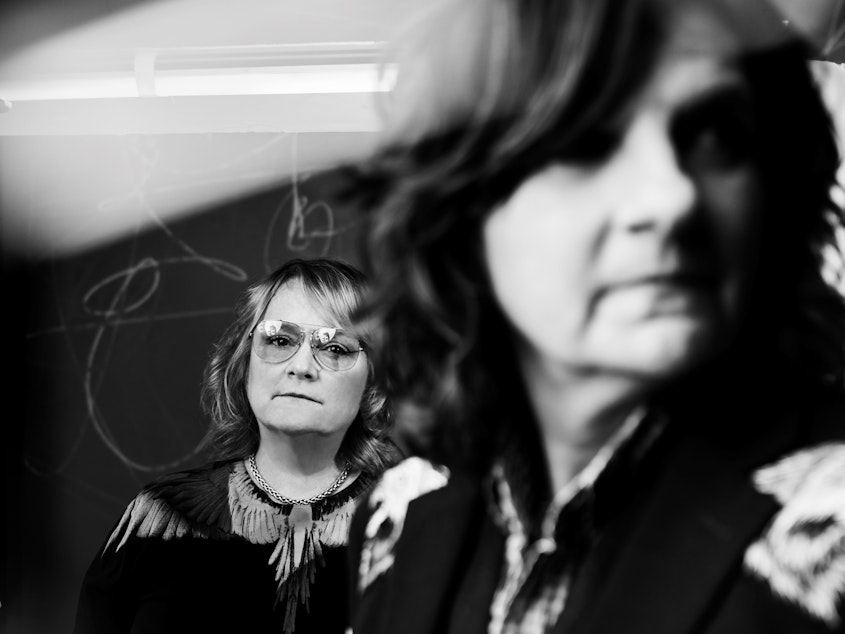Play It Forward: Indigo Girls' Amy Ray And Emily Saliers On Their 45-Year Kinship

We're back with season two of Play It Forward, where we talk with artists about their music and the artists they're thankful for. The band Indigo Girls has shaped a generation of singer-songwriters. Emily Saliers and Amy Ray released their first album in 1989; their latest album, Look Long, came out in May while the country was under stay-at-home orders and they debuted some of their new music in livestreamed concerts on social media, where tens of thousands of people tuned in to bond over music they'd grown up on.
NPR's Ari Shapiro spoke to Emily Saliers and Amy Ray about their lifelong bond, how they think about their place in country music and about the poetic flair of Kae Tempest. Editor's note: Since recording this interview, Kae Tempest put out a statement saying they are going by the name Kae and using them/they pronouns. NPR has received permission to air this interview as recorded. Listen in the audio player above, and read on for highlights of the interview below.
On what they're grateful for about each other
Emily Saliers: I'm thankful for Amy's integrity as a person, a human being. And I'm thankful for Amy's songwriting and for her musical sensibilities. Those are just a couple things — there's a million more I could list — but those come to mind.
Amy Ray: I'm grateful for Emily's strength and perseverance in this career, because I think we've needed that in order to survive as long [as we have], and [we've] know each other since we were 10, which is 45 years. So I'm thankful for that and her artistry. She tends to write a lot of songs that folks can sing along with, which is not the same skill set I have. And I'm lucky that she has that and that it enables us to resonate more, I think.
On writing songs about queer identity today versus earlier in their careers
Ray: We were very lucky because we came along at a time when all these icons — like k.d. lang, Melissa Etheridge, like gay icons — were coming out and other people before us had paved the way, all the feminists that came before us. We were kind of learning from all these different mentors in our community of Atlanta as well. And so we were given that ability to be strong and kind of comfortably come out, and both of us had a lot of self-hate and internalized homophobia along the way, of course, but our community of listeners kind of grew up with us. So as we were learning and becoming politicized in the queer world, they were as well, and they were teaching us.
Saliers: ["Country Radio" is] a song about feeling other than, 'cause I love country music — I love the songs and I love the voices, I love the stories — but I could not fit my life [into it]. I knew that these songs were written by men and women about men and women. It's like our stories don't get told when we're not included. And for me, it turned into an emotional feeling of wistfulness and loneliness and so the song describes that.
On Kae Tempest and "I Trap You"
Ray: [They're] a poet: like a true poet, like the greats, like the most literary class you can take. You don't even need to hear [their music], you can just read it and feel that way. One track that I think has a resonance that can just rip through you is "I Trap You." I typically don't pick songs about love, but I think it's because of the way [Tempest] talks about love. [They say,] "You make me a microscope / You make me a map / I called it 'love,' I should've called it 'trap.' " It's a beautiful love song but it's also a realization of all the things that [Tempest] wants a relationship to be.
Saliers: [Tempest] brings these big ideas down to something so human that each one of us experiences.
Ray: Thank you [Kae] Tempest and gosh: Carry on, please, carry on. [Copyright 2020 NPR]



